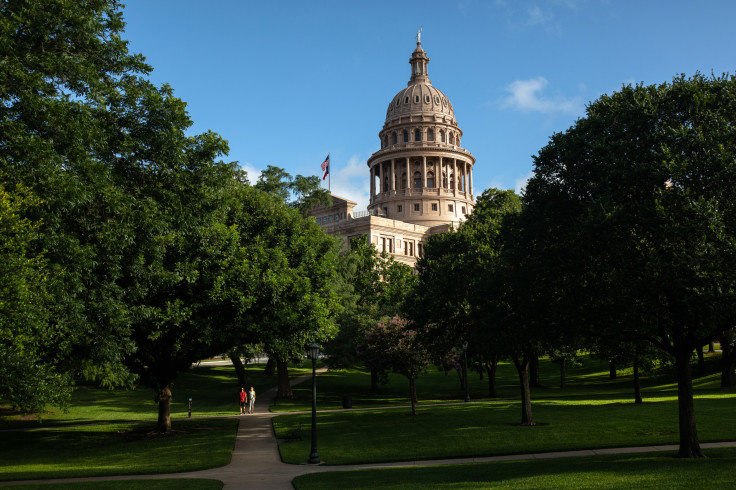
Lawmakers in the Texas House and Senate filed more than a thousand legislative proposals Tuesday, offering the public a peak of some of the issues both Republican-dominated chambers are hoping to prioritize in the 89th legislative session in January.
Key issues expected to receive substantial attention include border security, voter registration requirements, and restrictions based on the gender of student athletes—topics highlighted by many GOP candidates during their campaigns. In contrast, Democratic lawmakers have introduced bills supporting abortion rights, student loans, and the legalization of marijuana, though these measures are unlikely to advance to the governor's desk.
Here's a closer look at some of the notable bills filed on Tuesday:
Fingerprint Undocumented Children
Introduced by Rep. Nate Schatzline (R-Fort Worth), HB 1072 requires the Department of Public Safety to establish a database specifically for children under 18 who are suspected of being unlawfully present in the United States. Under this bill, law enforcement officers involved in Operation Lone Star would "obtain a complete set of fingerprints from the child for purposes of including the fingerprint record in the database"
The officers would also conduct wellness interviews to ensure they are not victims of trafficking. Collected information, including fingerprint records, would be stored in a database for tracking reentries at the Texas-Mexico border.
Border Protection Unit
Texas House Bill 354, filed by Rep. Briscoe Cain, R-Deer Park, proposes the creation of a "Border Protection Unit" to strengthen state security along the Texas-Mexico border, aiming to reduce criminal activity and public health risks. The bill outlines the unit's authority to construct barriers, "The unit shall oversee the construction and maintenance of walls, fences, and other physical barriers along the Texas-Mexico border in order to enhance the safety and security of citizens of this state." It also includes provisions for severe civil and criminal penalties related to border trespassing and health protocol enforcement during public health emergencies.
Proof of Citizenship of Voter Citizenship
Also introduced by Rep. Cain, Texas joint resolution HJR 49, seeks to amend the Texas Constitution to require proof of citizenship when registering to vote – top Texas Republicans including Attorney General Ken Paxton, Lt. Gov. Dan Patrick, and Gov. Greg Abbott, have voiced their support for this measure.
The amendment mandates that individuals submit both a registration application and evidence of citizenship to the county registrar as a condition for voter registration. HJR 49 will be included in the Nov. 2025 ballot for voters to decide. Ballot language will ask whether they support "the constitutional amendment to require a person to submit proof of citizenship to register to vote."
Increase State Immigration Authority
SB 81, introduced by Republican Senator Bob Hall, grants the Department of Public Safety (DPS) authority to take specific actions at the Texas-Mexico border if a "state of invasion or imminent danger" is declared. This includes empowering DPS personnel to intercept, repel, and return individuals crossing unlawfully outside official ports of entry, with provisions to arrest cartel operatives and enhance inspections of transport vehicles for drugs and human trafficking activities.
Hall also filed SB 134, which mandates that municipalities and counties enter agreements with ICE to allow local law enforcement to enforce federal immigration laws under Section 287(g) of the Immigration and Nationality Act. Non-compliant localities risk losing state grant funds and may face legal action by the Texas Attorney General to enforce compliance.
Sports Restrictions by Biological Sex
Republican Rep. Janie Lopez introduced Texas bill HB 1123, which would require students to participate in interscholastic sports based solely on their biological sex as listed on official documents, effectively barring transgender students from joining teams that align with their gender identity.
"A student may not compete ... if the student's chromosomal sex does not match the biological sex assigned at birth," the bill reads. HB 1123 mandates physicians who suspect a discrepancy between a student's biological sex and chromosomal makeup, to refer the student for genetic testing to confirm their chromosomal sex.
© 2025 Latin Times. All rights reserved. Do not reproduce without permission.





